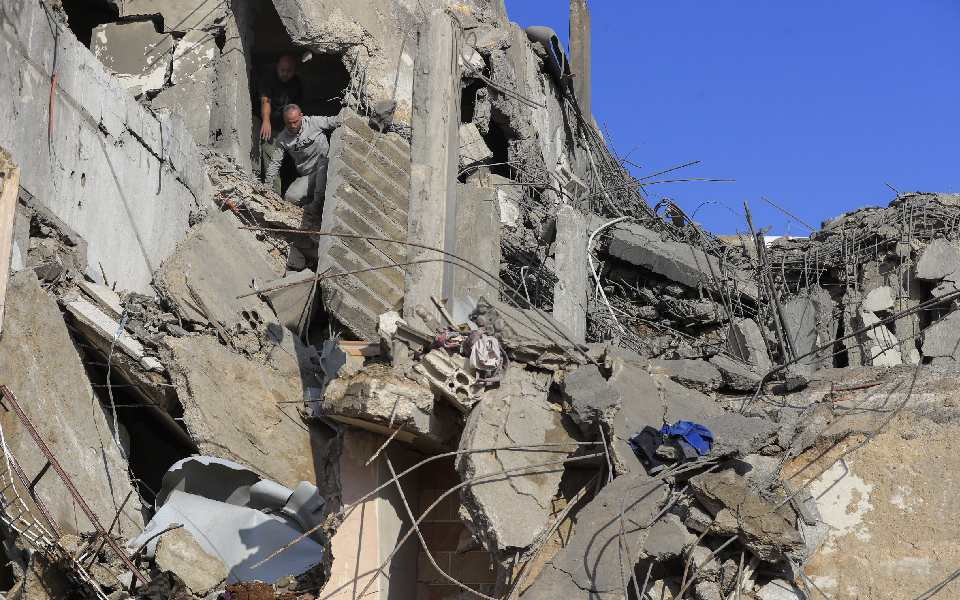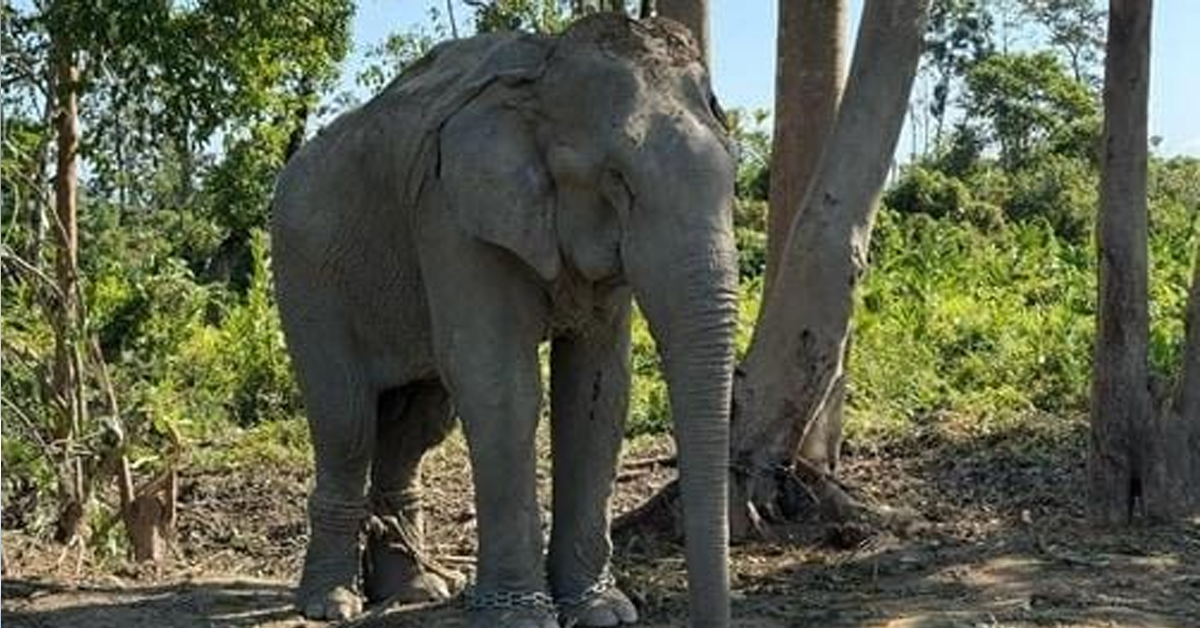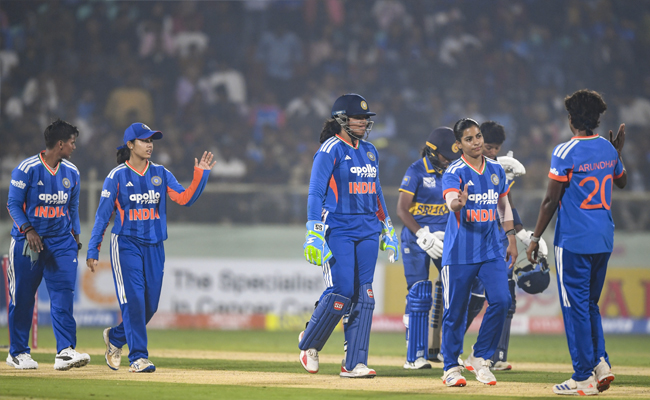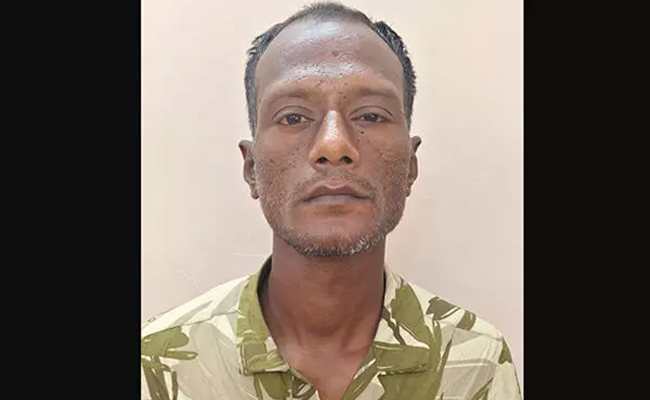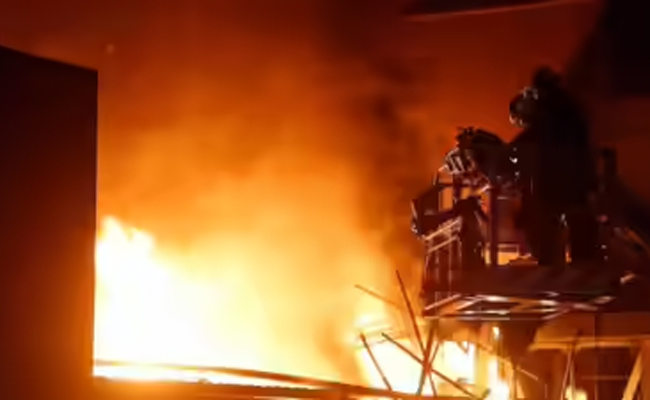Deir Al-Balah (Gaza Strip), Nov 5: An Israeli airstrike in northern Gaza killed at least 20 people, mostly women and children, Palestinian officials said Tuesday, as Palestinians fled Israel's assault. Some said they had hardly eaten, with aid cut off for weeks to the most isolated and heavily destroyed part of the territory.
Israel has been waging an offensive in Gaza's northernmost end for weeks, saying it is targeting Hamas group who regrouped in the area.
The UN has said Israel hasn't allowed food and other supplies into the area north of Gaza City since the assault began, even as tens of thousands of people remain there. That has drawn rebukes from the Biden administration, which has warned that US laws might force it to curb military aid to Israel if more aid is not allowed in.
The strike late Monday hit a home where several displaced families were sheltering in the town of Beit Lahiya, near the border with Israel, according to Hossam Abu Safiya, the director of the recently raided and barely functioning Kamal Adwan Hospital, which received the casualties.
The Israeli military said it targeted a weapons storage facility from which a group had operated, and that “numerous steps were taken to mitigate the risk of harming civilians.”
The dead included eight women and six children, according to a list provided by the Gaza Health Ministry's emergency service. Separate strikes elsewhere in Gaza early Tuesday killed another 10 people, according to health officials.
Dozens of Palestinians trickled out of Beit Lahiya on Tuesday — mostly women and children — dragging rucksacks and satchels with belongings. They entered Gaza City on a street where every building had been completely flattened or heavily damaged.
“We came barefoot. We have no sandals, no clothes, nothing. We have no money. There is no food or drink,” said Huda Abu Laila.
“We are hungry. Hunger has killed us. We were under siege for one month without water or food,” the gaunt elderly women continued, before erupting in tears.
Um Nidal Abu Laila, another woman fleeing Beit Lahiya, said there were bodies of Palestinians killed in the assault lying in the streets. “No one is able to retrieve them,” she said.
Gaza's civil defence agency said it had received reports of people trapped alive under the rubble of buildings destroyed by Israeli troops in Beit Lahiya, but it was unable to send teams to rescue them. It said the military has prevented its teams from operating in the area for the past two weeks. The Palestinian Health Ministry in Gaza said there are no ambulances currently operating north of Gaza City.
Two elderly patients, one who was battling cancer, died as they tried to leave Beit Lahiya as they waited to cross an Israeli military checkpoint, the Palestinian Red Crescent said.
The military has ordered the complete evacuation of Beit Lahiya, the nearby town of Beit Hanoun and the urban Jabaliya refugee camp. Still, the UN estimated last week that around 100,000 people remain there even after tens of thousands fled the past month, the latest wave of displacement within the besieged territory. Around 90 per cent of the population of 2.3 million have fled during the 13-month-old war, often multiple times.
The army has returned to several areas of Gaza multiple times after previous operations, as Hamas continues to carry out hit-and-run attacks on troops and fire occasional rockets into Israel.
The three hospitals serving the area have been largely inaccessible because of the fighting, and ambulances have stopped operating. Israeli troops raided Kamal Adwan Hospital last month, saying Hamas group were sheltering there, allegations denied by Palestinian health officials.
The offensive has raised fears among Palestinians that Israel is implementing a surrender-or-starve plan for northern Gaza proposed by former generals, in which civilians would be ordered out, aid would be cut off and anyone remaining would be considered a fighter.
The Israeli military has denied receiving such orders, but the government has not said whether it is adopting part or all of the plan.
Early Tuesday, an Israeli strike hit a house in the Tufah neighbourhood in Gaza City, killing two children and their parents, according to the Health Ministry's emergency service. Two other children were wounded, it said.
In the central town of Zuweida, a strike hit a tent where a displaced family was sheltering, killing four people, including a mother and her two children, according to Al-Aqsa Martyrs Hospital in the nearby city of Deir al-Balah. Another strike hit a house in Deir al-Balah, killing two people, the hospital said. An Associated Press journalist counted the bodies at the hospital morgue.
The Israeli military says it only targets Hamas group and accuses them of hiding among civilians. It rarely comments on individual strikes, which often kill women and children.
The war began when Hamas-led group attacked southern Israel on October 7, 2023, killing some 1,200 people, mostly civilians, taking another 250 people hostage. Around 100 captives are still inside Gaza, about a third of whom are believed to be dead.
Israel's retaliatory offensive has killed over 43,000 Palestinians, according to Gaza's Health Ministry, which does not distinguish between civilians and combatants in its toll but says over half of those killed were women and children.
Let the Truth be known. If you read VB and like VB, please be a VB Supporter and Help us deliver the Truth to one and all.
Pilibhit (PTI): A 19-day-old elephant calf, brought from Bijnor, was placed under care at the Pilibhit Tiger Reserve (PTR) on Sunday, an official said and added that the calf got separated from its mother in the forest area of Bijnor.
The calf was born on December 2 in the Bijnor forest area and got separated from its mother shortly after birth, the official said.
The forest department made several attempts to reunite it with its mother, but without any success. To ensure the calf's safety and better care, it was decided to transfer it to the Pilibhit Tiger Reserve on the instructions of senior officials.
On Saturday, Deputy Director Manish Singh received the calf. Special arrangements have been made in the reserve for its care. It has been kept in a safe and clean environment to provide it with a natural setting and protect it from external noise and disturbances.
Singh told reporters that raising an 19-day-old calf is challenging.
It requires a special diet as a substitute for mother's milk and constant monitoring.
He said a special team has been formed to provide 24-hour care. Since the calf is very young, it is being cared for like a newborn baby.
According to Singh, the primary responsibility for monitoring the calf's health has been entrusted to PTR's veterinarian, Dr Daksh Gangwar. Under his supervision, a complete record of the calf's health checkups, diet, and body temperature is being maintained. The team is ensuring that the calf does not contract any infection.

